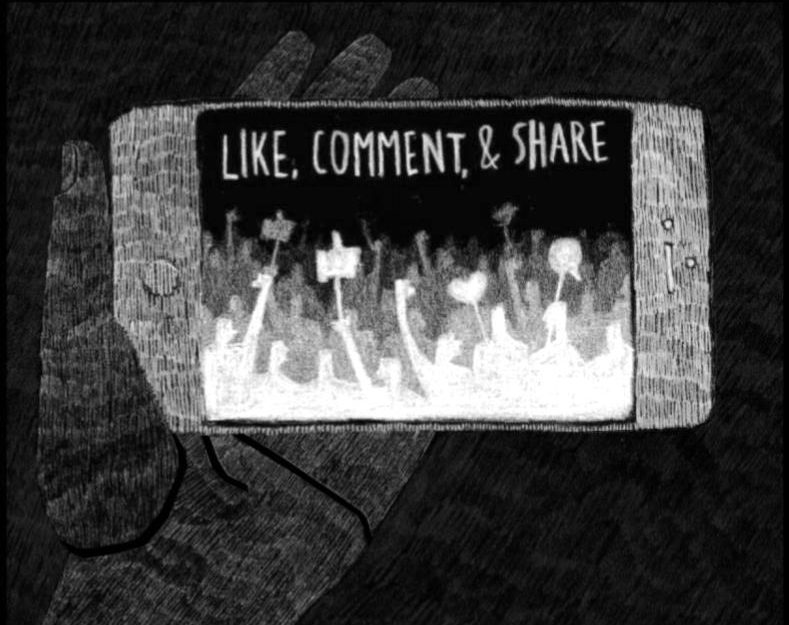Inefficacy of Activism Through Social Media
Social media has become an outlet for people to express that they care about an issue.
November 11, 2019
With increased accessibility to technology, social media has come to dominate our lives and the ways we interact with others. Most notably, it has allowed for a new form of activism through popular apps. When people repost news and inflammatory images, it is crucial to recognize the original intent of the posts and to acknowledge the importance of these current issues.
However, we must also question the efficacy of this form of activism—is it possible that reposts are being used to boost social status? The ease of access to social media and self-expression, we fear, may have altered the authenticity and meaning of activism, which plays an intrinsic role in democracy that ought to be preserved.
Back before social media was conceptually possible, it was much harder to advocate for a cause without a dramatic revolt; the pitchforks and torches of today maintain their heft, yet reside in our phones through push notifications and banners. Technology has made it so that anyone has access to their own pitchfork with merely three clicks on Instagram, but do people have the right intention when using them? For instance, when news of the Amazon rainforest fire blazed across the internet, the same images appeared over and over again on Instagram stories. This sudden influx of posts came well after the first fires made headlines; this digital movement was greatly separated from the fires themselves, gaining momentum from the number of reposts rather than the growing severity of the fires.
What many people don’t admit about these images is that the desire to repost can come from wanting social credit: wanting to tell people ‘yes, I care about this’ while removing yourself from the weight and reality of the issue. Posting serves the purpose of crafting an image rather than gaining knowledge and investing energy into a real issue—in fact, it might even take away from the importance of the problem at hand. For example, in response to political unrest and violence in Sudan, images of brutality and suffering surged on Instagram. People with all statuses on Instagram, from verified users to students, changed their profile pictures to a deep blue in solidarity with Sudanese people. Some posts even claimed that for every repost they got, a meal would be sent to Sudan. Further investigation into these profiles, though, proved that they were merely scammers taking advantage of the event—they weren’t linked to any specific organization, and likely weren’t sending food because food is incredibly difficult to ship to Sudan. A deleted post on @SudanMealsProject showed statistics of Sudan’s “famine conditions,” which were actually numbers from South Sudan, an entirely different country. While spreading awareness is a good start, the ignorant repetition that Instagram promotes—willfully or not—will quickly devalue the cause itself.
Although it is true that the accessibility of social media has given a greater number of people the ability to speak out about what they think is right, the melding of both social platforms and our desire for popularity has become the downfall of our digital era. Individualism and passion are drowned by waves of reposts, and the intent of the original post is lost. Often out of sync and uninformed, these posts do more harm than good, spreading misinformation or false hope. The true activists of today fight for their cause in a meaningful way, not needing the “reposts” and “likes” of others. So, before you turn your profile picture to blue or retweet that enticing statistic, ask yourself the hard question: are you truly helping anyone but yourself?
This piece also appears in our October 2019 print edition.












